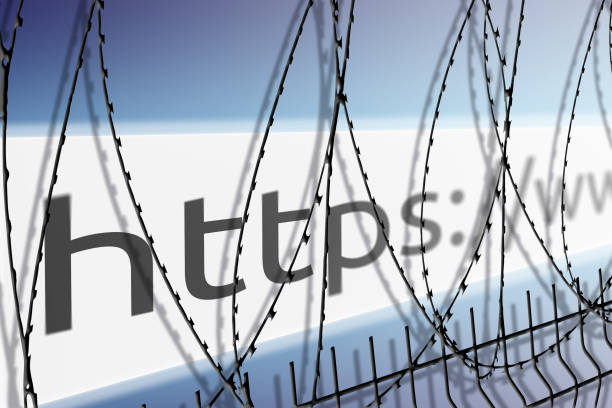
With the snowballing number of proceedings under Section 138 and 141 of the Negotiable Instruments Act, 1881 (“NI Act”), the grounds taken by the Directors to escape their personal liability has also ascended significantly.
The most deliberated quarrel in current times has been whether a moratorium granted under Section 14 of the Insolvency & Bankruptcy Code, 2016 (“IBC”) would apply to proceedings under Section 138-141 of the NI Act. This question has endured numerous interpretations and has led to the creation of deviating views by different legal forums. Considering this, there is an urgent need for clear understanding of the legal position and the application of the law in such situations.
The intent behind the moratorium under Section 14 of IBC is to protect the Corporate Debtor’s financial health by barring the institution of suits or continuation of proceedings against the Corporate Debtor, including recovery of any debt by execution of any decree, judgment or order. Having said that, the underlying conundrum concerning the application of moratorium to Section 138/141 NI Act proceedings was created because such proceedings are of criminal nature and thus, would not fall within the ambit of “proceedings” against the corporate debtor.
However, this issue has been clarified to an extent by the Supreme Court in a recent judgment thereby, upholding that Section 14 of the IBC will apply to Section 138/141 NI proceedings and the same would be stayed in furtherance of the moratorium observed under the given Section. While one aspect of the dilemma was clarified, the next question that was addressed by the Court was whether the statutory bar under Section 14 IBC would prevail over the proceedings under Section 138/141 NI Act that is filed against the directors of the concerned corporate debtor.
Answering the question negatively, the Supreme Court further held that the moratorium provision contained under Section 14 IBC would not apply to the natural persons mentioned in Section 141, thereby, continuing their statutory liability under Chapter XVII of the NI Act. The judgment has set the boundaries pertaining to the liability of both the corporate debtor and the directors. However, in recent times, the courts have provided relief to the directors along with the corporate debtors against the NI Act proceedings on the ground of the application of moratorium under Section 14 IBC. This obscure position taken by the courts has created confusion in the legal fraternity and establishing a proper interpretation of the same is the need of the hour.
INTERPLAY BETWEEN SECTION 138/141 NI ACT AND SECTION 14 IBC
The NI Act and the IBC are two such legislations that play a significant role in the Indian legal system. While NI Act governs and regulates the negotiable instruments in India by establishing the criminal liability of individuals and companies in cases related to the dishonour of cheques or other instruments, IBC provides a uniform framework for resolving insolvency and bankruptcy cases against individuals, corporate entities and partnership firms. Both the legislations have been developed keeping in mind the different ambits that both relate to, however, the conflict between the provisions of the two is no new concept. The applicability of Section 14 IBC on Section 138/141 NI Act proceedings is a long-debated question that awaits clarification.
Section 14 of the IBC introduces a moratorium period that is to be observed during the continuance of the proceedings under the IBC and prohibits initiating any legal proceedings or continuing the already existing ones. This allows the corporate debtor to hold its assets during the insolvency resolution process and facilitate the orderly completion of the processes without any hindrance caused due to other legal proceedings.
On the other hand, Section 138 of the NI Act establishes the criminal liability of individuals and corporate entities in cases pertaining to the dishonour of cheques. According to this Section, if a person drawing the cheque in favour of another person, is returned unpaid by the bank, either due to insufficient amount or exceeding the amount as arranged with the bank, an offence under this Section will be committed by the person who issues the cheque and he will be liable for the punishment for the same.
Similarly, Section 141 of the NI Act extends this criminal liability to the directors and other members of the company if they are found responsible for the same. The provision prevents the directors from taking shelter under the garb of a corporate entity by making them liable for an offence committed under Section 138 of the NI Act by the concerned company.
On interpreting these provisions, one may find no correlation between the two since one pertains to resolving insolvency while the other establishes criminal liability. Considering the issue at hand, contrasting views have been taken by the courts. However, recently, Supreme Court has clarified this position in the case of P. Mohanraj & Ors. Vs. M/S. Shah Brothers Ispat Pvt. Ltd.
Analysing the Judgment
The Supreme Court in the case of P. Mohanraj & Ors. Vs. M/S. Shah Brothers Ispat Pvt. Ltd (Supra) ruled out the long debate on the applicability of Section 14 IBC on the proceedings pertaining to Section 138/141 of the NI Act. In order to address the issues, the Court laid out the nature and the broad scope of the provisions. Given that the terms provided under the provisions are to be interpreted in a broad manner, the Court held that:
- The word “proceedings” used in the expression “proceedings against the corporate debtor including execution of any judgment, decree or order in any court of law, tribunal, arbitration panel or other authority” under Section 14 IBC, also includes proceedings under Section 138 NI Act, insofar as the corporate debtor is concerned. The Court further stated that the Section 138 proceeding being conducted before a Magistrate would certainly be a proceeding in a court of law in respect of a transaction which relates to a debt owed by the corporate debtor.
- The proceedings of Section 138 NI Act are considered quasi-criminal in nature and the Court gave it the expression of ‘civil sheep’ in ‘criminal wolf’s clothing’ as it is primarily a civil wrong with criminal overtones. The Court reasoned that the proceedings under Section 138 NI Act are both punitive and compensatory, wherein, a hybrid punishment is contemplated, i.e., imprisonment and compensation with fine, which is both criminal and civil liability, making the proceedings quasi-criminal.
In furtherance of the above, the Court observed that a quasi-criminal proceeding which would result in the assets of the corporate debtor being depleted as a result of having to pay compensation, would directly impact the corporate insolvency resolution process in the same manner as the institution, continuation, or execution of a decree in such suit in a civil court for the amount of debt or other liability. Considering this interpretation, the Court discerned that being quasi-criminal in nature, the proceedings under Section 138 NI Act would be stayed during the period of moratorium covered under Section 14 IBC.
Another issue that the Court brought its notice to was whether the natural persons, mentioned under Section 141 of the NI Act, are covered by Section 14 of the IBC. The Court noted that the legal impediment contained under Section 14 IBC makes it impossible for Section 138 NI Act proceedings to be initiated or even continued against the corporate debtor. However, such proceedings can be undertaken against natural persons as mentioned under Section 141(1) and (2) of the NI Act. The Court, therefore, made it clear that the moratorium provision contained in Section 14 of the IBC would apply only to the corporate debtor, the natural persons mentioned in Section 141 will continue to be statutorily liable under Chapter XVII of the Negotiable Instruments Act.
AFTERMATH OF THE JUDGMENT PASSED BY THE SUPREME COURT
After the Supreme Court judgment on the personal liability of natural persons in the concerned situation, several courts followed the law established by the Supreme Court and ruled out that while Section 14 IBC would be applied to the proceedings under Section 138 NI Act against the corporate debtor, it will not be applied against the directors of the corporate debtor. However, there are courts that have discerned the law in favour of the directors and granted relief to them by staying the proceedings under Section 138 NI Act against the directors on the ground of the application of moratorium under Section 14 IBC.
In the case of Amit Sureshmal Lodha and Ors. v. Yashu Iron Pvt. Ltd. the High Court of Punjab and Haryana ordered to stay the proceedings under Sections 138 and 142 of the NI Act initiated against the directors till the insolvency resolution proceedings are completed before the NCLT. This order came after the Supreme Court judgment, thereby, negating the set law in the judgment. Similarly, in another case of Balbir Singh Uppal and others v. M/s ICICI Bank Ltd. Punjab and Haryana High Court stayed the proceedings of Section 138 NI Act against the directors on account of the continuance of insolvency proceedings before the tribunal.
Additionally, in another case of M/s RPG Infratech v. Mr. Darban Singh Nayal and another, the High Court of Uttarakhand passed an order, thereby, disposing the proceedings under Section 138 NI Act by granting a time of 20 months to the corporate debtor and the directors to pay the required amount. However, due to non-payment of the amount, contempt proceedings were initiated against the corporate debtor and the directors. On interpreting Section 14 of the IBC, the Court observed that the period of moratorium does not continue indefinitely but has effect only from the date of the order declaring moratorium till the completion of the insolvency resolution process, which is time-bound. However, if there are reasons prevalent that prove the reasonableness and bona fide intention of the corporate debtors/ directors, the case to punish them does not arise. The Court also reiterated the law laid down by the Supreme Court in the case of Suman Chadha and another Vs. Central Bank of India, wherein, the Court held that in appropriate cases where a party had acted bonafide while giving an undertaking, but could not honour the undertaking on account of reasons that are reasonable and genuine, the Court could certainly withhold its stick from being wielded. In furtherance of the above, the Court held that the respondents on account of reasons that are reasonable, genuine and beyond their control, could not perform their part of the undertaking and as a result, no case to punish the respondents can be made out.
Followed by all the discussions and divergent views on the law in question, the Supreme Court reiterated the law, thereby, clarifying the current position regarding the personal liability of the directors. The Supreme Court, in the case of Ajay Kumar Radheshyam Goenka v. Tourism Finance Corporation of India Ltd, adjudged that the initiation of the insolvency process to recover the debt would not absolve the director from the criminal liability in cheque bounce cases. The Court dealt with each issue extensively and interpreted the laws and the provisions concerning the situation. The Court clarified the law by upholding that where the proceedings under Section 138 NI Act has already commenced and during the pendency the resolution plan is approved or the company gets dissolved, the personal liability of the directors covered under Section 141 of the NI Act will not be absolved and they will continue to face the prosecution under the NI Act. In addition to this, the Court also observed that even after the extinguishment of debt, the director/ signatory will not escape penal liability.
CONCLUSION
After a careful analysis of varied stances taken up by courts and the recent judgments reiterating the law established by the Supreme Court, the law in question stands clarified, thereby, continuing the personal liability of the director under NI proceedings even when the moratorium has been applied under Section 14 IBC. However, through the discussion, it can be observed that while, on one hand, the law on the personal liability of the directors has been established, on the other hand, the rule of purposive interpretation has been applied to decide on a case-to-case basis. Resultantly, even after setting out the law in the case of P. Mohanraj (Supra), the Courts preferred to follow the thumb rule of purposive interpretation, thereby, dissenting from the Supreme Court’s decision. Therefore, the legal conundrum revolving around the moratorium under section 14 and its interplay with the NI Act, albeit largely resolved, must be addressed in a universal manner, thereby, setting a precedent and removing the prevailing confusion regarding the matter.










